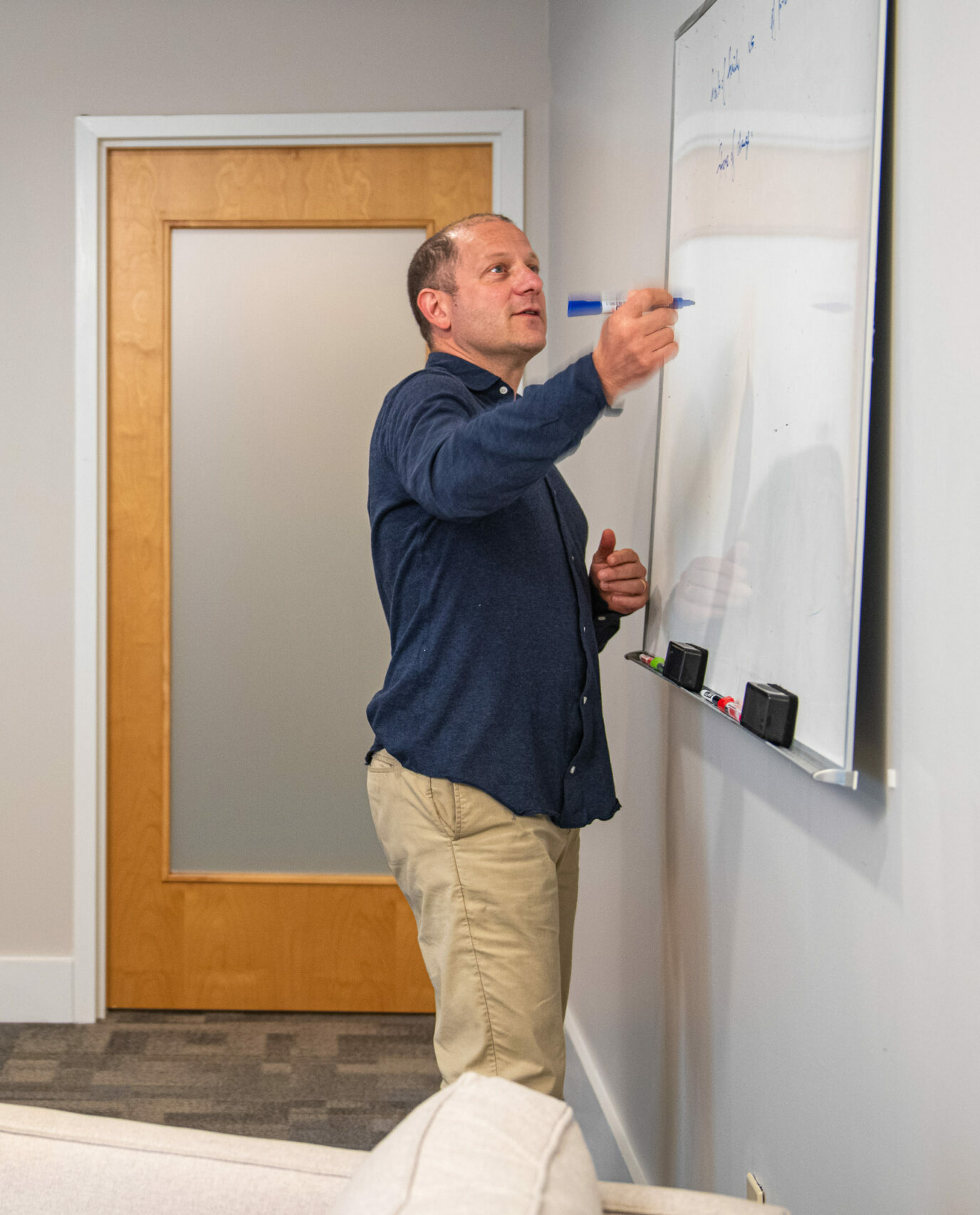Effective strategies for addressing mood disorders
Psych Garden is highly regarded for its excellence in treatment-resistant mood disorders and often see people for second (or later) opinions and expert consultations.
Depression and bipolar disorders affect some 20% of people and have devasting impact on self-esteem, work, and relationships. They can be caused by social impacts like aloneness, helplessness and powerlessness, as well as biological factors, like genetics, hormonal changes, infections like Lyme, and perhaps even our microbiome. While many people use drugs and alcohol to help with mood and sleep, they usually end up making things worse.
We understand how the impact of dysregulated moods can be challenging to deal with. We support you and your family through every step of your journey, and we will work with you to help you find the best possible treatment for your unique situation. Not everyone wants medications, and frankly, psychotherapy and life changes can be far more appriorate for many. Either way, we’ll talk through all the options and accompnay you through your progress.


Support for depression & bipolar disorders
Medication can be an important part of treatment, but it’s just one piece of the puzzle. We’re here to help you put the pieces together and get your life back on track. When treating depression, antidepressants can have a modest yet meaningful impact. On the other hand, life changes, diet changes, a focus on sleep, and a nurturing of relationships can be profoundly impactful.
With more severe bipolar conditions, medications are often required to stabilize and stay stable. But here, too, that focus on relationships, sleep, and self-care is essential.
It’s never all biological or all psychological or all trauma. These themes intertwine in development and all the braids should be examined in the recovery process.
The link between mood & addiction
Mood fluctuations can rock our world, making it impossible to hold a steady course and flourish. Drugs and alcohol can ease the pain, help sleep, relieve anergia, make the bland twinkle… if only for a bit. It’s easy to turn to them when moods are shaky. And because these options “cheat” – because they are more compelling and we feel even worse when they wear off – they pull us more and more into a habitual loop. Our bodies and minds become dependent.
We understand what you’re going through. We help you get to the root of the problem, providing compassionate support and guidance to help you find long-term relief from your low mood.
Effective treatments for mood disorders combine medication approaches with a focus on changing the ways we relate to our world

We take a personalized approach to treating your mood disorder. While some depressive disorders have purely physiological causes, others may be rooted in current circumstances or past trauma. This means each case needs its own, unique approach. What works for one client may be ineffective for another. We get to the root of the issue to understand what will be most helpful to you. Our team works holistically to support your healing.
-
Medication
Starting with a careful evaluation (which may include genetic testing, a timeline of what helped or hindered, and takes account of all the side effects you must not have), we choose a combination of medications based on the research, staying focused and as minimalistic as possible. When treating addictions comorbid with mood disorders, using meds that help both conditions reduces relapse to either. We often use medications well known to others, but also those that are highly effective yet unfamiliar like MAOI’s, ketamine or probiotics.
-
Behavioral interventions
There are so many treatments that work, and it’s so frustrating that many therapists waste time with treatments that do little more than provide support. Not to knock support. A good caring connection is essential for therapeutic success. But it’s not enough. You need skilled application of targeted treatments that will teach you to tolerate feelings, keep anxiety within a tolerable range, and manage yourself in ways that keep your mind and body functioning well. So we use CBT and ACT, DBT and relational approach. But we also teach you sleep hygiene and restriction, proper nutrition and encourage or craft social reengagement.
-
Relational therapies
Some of the therapy we do aims to deeply transform your models of yourselves. The main deep models we use derive from AEDP and IFS. As kids, we develop schemas - habitual ways to cope with feelings and stay connected and safe. Our environments may not always fit our needs. If we are very sensitive we will need more patient empathy; if more distracted we may need more gentle structuring. Too often, we can feel an invalidating environment that leaves us feeling alone. Of course, the environment can range from not-enough, through neglect to shaming, humiliating or, frankly, endangering. But the therapy aims to teach anxiety regulation, activate emotional memory in the safety of the therapy and modulate our sense of self through consolidating the new experience. We feel that such therapy is important for many to make change last a lifetime.
Biosocial rhythm therapies
Biosocial rhythm therapies are a unique and supportive approach to mental health that can help you achieve your goals. These therapies offer a focused and educated review of how we prepare for sleep, get a solid night, wake at a regular time and allow sleep to do its job of cleaning our brains and consolidating experience. So often, people are harming their sleep when they’re trying to help.
An easy example here is alcohol, which helps us get to sleep but evokes an arousal response that causes the latter half of sleep to be shallow, leaving us drained and anxious the following day and reaching for a drink the next night. We all know that loss of sleep leaves us more irritable and distractable. What must that do to bipolar disorders, ADHD or depression? Training the circadian rhythms with behavioral approaches, investigating sleep disorders, and using the medications at the right time… it’s essential to recovery.
